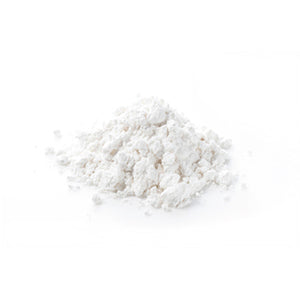
Zinc Citrate
BIO
Found In
Oysters, crab, nuts, whole grains, pumpkin seeds
Form
Zinc Citrate
Source
Zinc Citrate
Zinc is an essential trace element that the body requires on a daily basis. In order for the body to function properly, zinc is required. Zinc is indispensable for the body’s everyday functions like hormone production, immunity, digestion, and growth and repair. It can even act as an inflammatory, which can be beneficial for chronic diseases like heart disease. In spite of zinc being an essential component to our body, zinc deficiency is common.
KEY BENEFITS
- Supports immune system
- Helps in growth and development during periods of rapid growth such as pregnancy, infancy, and puberty
- Beneficial for skin, hair, and nail health. It is involved in the formation of connective tissues and collagen synthesis
- Provides antioxidant support
- Helps maintain hormonal balance
Description
The highest levels of zinc are found in foods high in protein. Vegan and vegetarian diets are at a higher risk of zinc deficiency since both diets are naturally lower in zinc than diets that include protein from animal sources. However, plant-based diets can still meet zinc requirements through a variety of zinc sources. Plant-based rich sources of zinc are grains, beans & legumes, raw cacao, nuts & seeds, nutritional yeast, and oats. But phytates present into the plant sources can inhibit the zinc absorption.
Boosts Immunity
Zinc plays a vital role in the maintenance of the body’s immune system. Adequate amounts of zinc can speed up the healing process and reduce the risk of falling ill, as it has the ability to exert an antiviral effect. Common colds symptoms can also be reduced when supplementing with zinc (1).
Antioxidant Support
Antioxidants fight free radicals stimulated by an oxidant reaction. Zinc has shown to exert an indirect protective antioxidant effect on vitamin E depletion, stabilization of membrane structure, and limitation of free radical production. These anti-inflammatory properties reduce the risk of infections and boost immune health (2).
Hormone Balance
Fertility and hormonal health positively benefit from zinc. Zinc impacts the production of testosterone in both men and women. In women particularly, zinc is required during the monthly reproductive process and production of estrogen and progesterone (3).
Aids Muscle Growth and Repair
Zinc is an essential component in cell division and growth. Thus, muscle repair and growth benefit from zinc making it possible for the body to heal its muscular and skeletal systems, particularly after exercise or any muscular trauma. It also plays a role in testosterone, insulin, and growth hormone release, which are connected to building muscle and a healthy metabolism.
Supports Eye Health
Age-related Macular Degeneration (AMD) is very common in the elderly. Zinc concentration is reduced in the human eye in patients with AMD, and zinc deficiency may have led to oxidative stress and retinal damage. Zinc supplementation reduced the risk of AMD (2).
Role in Skin Health
Zinc has been found to possess antiandrogen action and it modulates 5𝛼-reductase type 1 and 2 activity. Along with its antiandrogenic activity, Zinc also shows antimicrobial activity against P. acne (4).
The reduction of testosterone to dihydrotestosterone (DHT) by the enzyme 5α-reductase is an important enzymatic process involved in androgen activity. DHT is a more potent androgen than testosterone. DHT is generally considered responsible for the stimulation of the sebaceous gland and increased local formation of DHT has been documented in acne outbreaks. Inhibition of 5α-reductase can prevent the conversion of testosterone to dihydrotestosterone (DHT), therefore sebum gland won’t produce excess sebum under the influence of DHT which will in turn help to control acne breakouts (5).
The Unived difference
Zinc is present in various different forms. But gastric issues like nausea, and stomach upset are associated with zinc supplementation therefore it is important to take zinc supplements in the right form. Zinc citrate is one of the most absorbable and tolerable forms of zinc. Therefore it minimizes the chances of stomach upset.
Evidence-Based or Bust
We use nutrients backed by a significant body of research that is growing each day.
- The role of zinc in antiviral immunity
Read, S. A., Obeid, S., Ahlenstiel, C., & Ahlenstiel, G. (2019). The role of zinc in antiviral immunity. Advances in nutrition, 10(4), 696-710. - Zinc in human health
Prasad, A. S. (2020). Zinc in human health. Personalized Medicine, in Relation to Redox State, Diet and Lifestyle. - The role of zinc in selected female reproductive system disorders
Nasiadek, M., Stragierowicz, J., Klimczak, M., & Kilanowicz, A. (2020). The role of zinc in selected female reproductive system disorders. Nutrients, 12(8), 2464. - Zinc therapy in dermatology: a review
Gupta, M., Mahajan, V. K., Mehta, K. S., & Chauhan, P. S. (2014). Zinc therapy in dermatology: a review. Dermatology research and practice, 2014. - Inhibition of 5α‐reductase activity in human skin by zinc and azelaic acid
Stamatiadis, D., Bulteau‐Portois, M. C., & Mowszowicz, I. (1988). Inhibition of 5α‐reductase activity in human skin by zinc and azelaic acid. British Journal of Dermatology, 119(5), 627-632.
1,340
Studies on Zinc Citrate and Counting
Clinical deficiency of zinc affects epidermal, gastrointestinal, central nervous, immune, skeletal, and reproductive systems. Zinc is being studied for its numerous functions.
